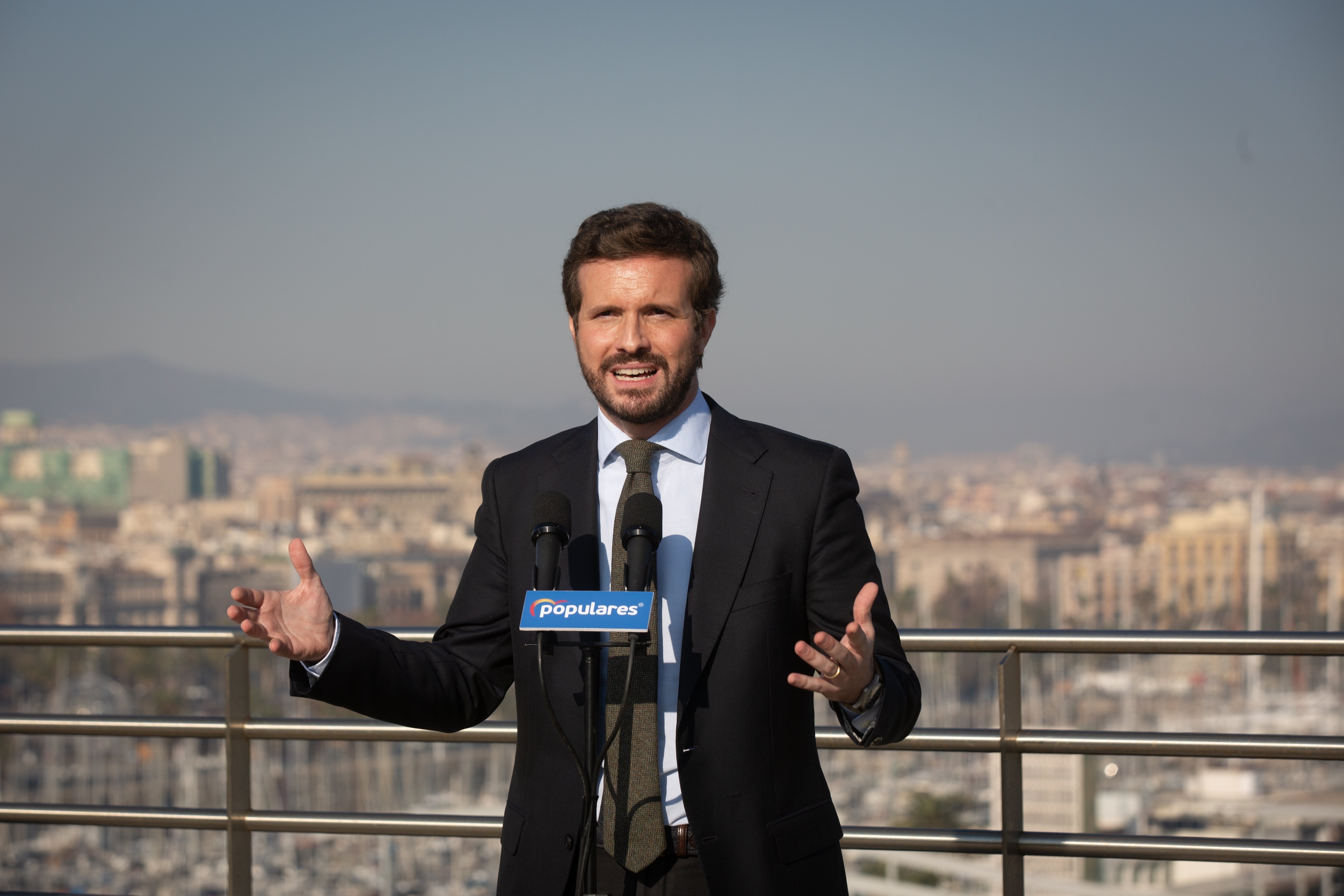That putting an end to Catalonia's language immersion policy is a matter of state for a large part of Spanish unionism has been demonstrated by the visit to Barcelona today by the president of the Popular Party (PP), Pablo Casado, to meet with several pro-Spanish associations in the city's Grand Marina hotel. After the meeting, which lasted an hour longer than expected, he appeared before the media to threaten Catalan education minister Josep González Cambray and the whole government of which he is part with court action, and to demand that Spanish prime minister Pedro Sánchez send the warning required to start the process of imposing direct rule on Catalonia via constitutional article 155.
In front of a spectacular view of the Catalan capital, Casado accused the independence movement of "destroying this society" and warned that if the government does not comply with both the ruling of the Catalan High Court, dictating a 25% Spanish quota for the school in Canet de Mar, and that of the Supreme Court, confirming the general validity of the quota, it will be committing offences of disobedience and abuse of authority. In fact, he also said that the participation of the Catalan executive in the protest against the 25% sentence called for this Saturday by the Somescola platform will not go unpunished.
In his speech, the PP leader attempted to separate his linguistic demands from the left-right political axis, claiming that the issue is about "humanity and freedom." And he continued to justify his request for an article 155 threat, recalling that the Socialist government of Felipe González did the same with the Canary Islands.
The PP offensive
The PP leader also announced a series of measures such as a Congressional declaration condemning the Catalan government's action, for which he is seeking the votes of the governing PSOE; a bill to create an inspection body for schools "to guarantee language liberty throughout the state"; a language law to "protect the freedom of choice" of the teaching language used, and prevent the Spanish co-official languages such as Catalan, Basque and Galician from being a requirement for access to public office; and a request to the European institutions to send an international mission to "ensure the rights of the child of Canet and compliance with the court rulings."
Casado appealed directly to the Catalan minister Cambray and the president of the Generalitat, Pere Aragonès, assuring that he would also defend their children from harassment for asking to be educated in Catalan. And he had no doubts about comparing the situation of Spanish speakers in Spain with blacks in the United States: likening the Canet de Mar case with the 1960s US racial segregation instance when US president John F. Kennedy sent troops to Mississippi to allows African-American James Meredith to attend college.
Asked about the wishes of former Spanish king Juan Carlos I to return home after the Swiss prosecutor closed its investigation of his Saudi funds, Casado only replied that all Spaniards should be grateful to him for his "contribution" to the post-Franco transition and democracy.
The fall of Catalan, the fault of the immersion policy
In the same vein, the president of the Catalan PP, Alejandro Fernández, accused the government and the language immersion model of being the cause of the fact that Catalan is less and less spoken among young people and in Catalan society in general. Fernández added that "any case that requires the harassment of a child is not worth it".
Asked if his party will join Vox and Ciudadanos and ask Spain's Central Electoral Commission to withdraw the seat of CUP deputy Pau Juvillà, Fernández would not confirm this, but he warned the speaker of parliament, Laura Borràs, that what she is doing to protect his seat "is useless, because the rule of law works and imposes itself."
Main image: Pablo Casado, president of Spain's PP, at the press conference in Barcelona / Photo: Europa Press

